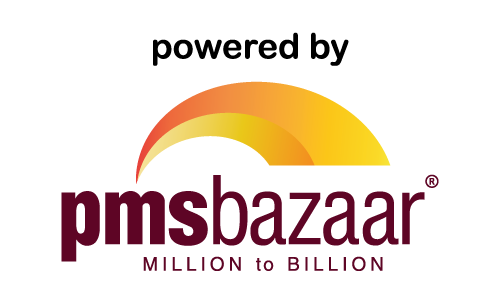Portfolio Management Services (PMS) Vs Do It Yourself (DIY) Investors

Why PMS fund managers score over DIY investors
As a part of the fastest growing large economies in the world, Indian markets have experienced great buoyancy over the past 4-5 years, especially in the post-COVID era. There were 41 million demat accounts in operation in March 2020, but the figure has more than tripled to 150 million by March 2024, signalling the heightened interest in the markets. The country is set to become a $7 trillion economy by 2030. With rising incomes and investment opportunities spread across asset classes – stocks, bonds, gold and real estate – well-off investors seek to create sizeable wealth over the long term.
For HNIs (high net worth individuals) and UHNIs (ultra high net worth individuals) there is a constant dilemma over whether they should do it all themselves (Do-It- Yourself: DIY) or approach a PMS (portfolio management service) and seek a portfolio manager.
Read on to get a better picture of why a portfolio manager would be lot better for a HNI or UHNI to meet all life goals as also to create generational wealth than taking the DIY route.
Professional planning and risk assessment
Whether it is about sending kids abroad for their higher education, enjoying regular international holidays, buying luxury properties, vacation homes or fancy cars, planning for retirement or leaving a legacy, HNIs and UHNIs need considerable planning.
A PMS manager will be able to systematically work with HNIs and arrive at the investments required to achieve the goals stated, within the necessary timeframes.
Additionally, assessing the risk appetite before investing is critical to decide how much volatility is acceptable to an investor as also the best avenues for deploying money.
A DIY investor may not be able to objectively assess risk or decide rigorously about the investments required to reach specific goals.
Bespoke investment solutions
Once your goals and risk appetites are set out, the next step would be to decide the right investment strategy that will enable an investor to achieve the targets.
A PMS fund manager can work with investors and workout a personalised solution for all investment requirements. The PMS would have sophisticated tools – both online and offline – to accomplish these tasks.
This will include deciding on the right investment strategy such as choosing among large-cap, mid-cap, multi-cap, small-cap, hybrid and multi-asset strategies in the case of equities, for example. It could also be about deciding between duration and accrual play in the case of bond investments.
The idea is to invest in a suitable funds or strategies that will take investors to their goals in keeping with the risk appetite.
A DIY investor may not have the ability to choose the best set of investments that could help reach their goal.
Fixing the asset allocation pattern
The bedrock of portfolio construction is asset allocation – the act of distributing investments across stocks, bonds, commodities and real estate among a few other options.
Asset allocation ensures suitable portfolio diversification and also lower volatility as investments are made in uncorrelated assets.
PMS fund managers can devise a suitable asset allocation pattern for an investor’s risk appetite and goal requirements.
A PMS would also be able to offer multiple products that invest in different asset classes under one roof, which means that a HNI can get access to complete investment solutions.
On the other hand, it would be highly challenging for a DIY investor to decide the asset allocation pattern, apart from deciding which avenues are the best for investing in a specific asset class.
Research-backed decision-making
A PMS firm would have fund managers and research analysts who track various stocks and sectors keenly.
The portfolio manager would have a set of stocks that are good to invest in at any point in time based on the fund strategy’s mandate. With considerable expertise across domains and industries, and with rigorous stock selection methods backed by robust models, the decision-making process is well-thought-out in the case of a PMS.
Additionally, a portfolio manager would have deep insights on when to buy, hold or sell a particular stock, which is critical to realising profits from investments.
Also, the fund manager can decide when to hold cash and when to redeploy money subject to careful market judgement and internal model suggestions.
Similarly, debt and commodity strategies are also worked out carefully and systematically by professionals who are seasoned.
Based on interest rate expectations, geopolitical situations, macroeconomic scenarios, global Central Bank actions, local and global economic cycles, PMS fund managers are able to take optimal decisions backed by extensive research.
A DIY investor can rarely have such expertise across asset classes and also the time required to monitor sectors, macros and other key factors, leading to less- desirable decisions and sub-optimal outcomes. Besides timing of entry and exit into and from stocks or bonds can be extremely challenging for DIY investors.
Tax optimisation
All buying and selling decisions have implications on the tax front. There could be long-term and short-term capital gains taxes incurred. Although there is no escaping from taxes, a PMS can help optimise on tax outflows by structuring its buying and selling decisions accordingly.
A DIY investor may not be able to fully comprehend the implications of post-tax returns and thus not focus too much on the important aspect of taxation of gains.
Overall, for HNIs and UHNIs, the best course of action to grow their corpus in their wealth creation journey would be to take the PMS/portfolio management route. The DIY route may not be dependable enough to ensure that these wealthy individuals grow their money and optimise returns.




